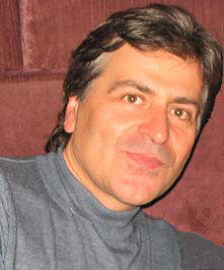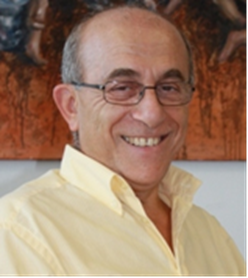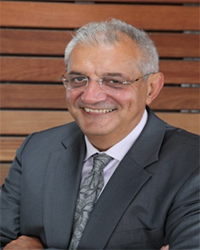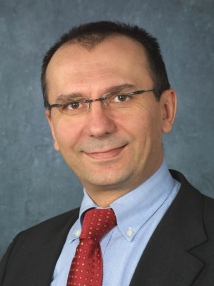KEYNOTE SPEAKERS

Alex Papalexopoulos
CEO and Founder of ECCO International
CEO and Chairman of the Board, ZOME Energy Networks
Title: Design of the Next Generation Energy Market Structures for a Successful Energy Transition
Abstract
Over the last 10 years a combination of policy directives and technological advances has led to wholesale changes in our industry. The key objective of the decarbonization of the economy and the grid has resulted in a rapid and significant addition of Distributed Energy Resources (DERs), such as Renewable Energy Sources (RES), Demand Response (DR), Storage, Electric Vehicles (EVs), into the grid in Front and Behind the Meter (BTM). At the same time the IoT revolution is emerging as a major market force that is expected to create massive flexible capacity which can be harnessed to solve grid problems and assist in the integration of RES into the grid. On the other hand, this addition of DERs into the energy mix is creating serious market and operational problems that require the restructuring of organized energy markets.
In this presentation I address mainly the organization of the wholesale and retail markets of the evolving energy landscape. I’ll present the emerging hierarchical market structure that consists of wholesale, retail and markets BTM. It is envisioned that resources will be free to participate in all three market structures at the same time to extract the maximum value to the grid and monetize their services. Further, I focus on the challenges of their participation in this hierarchical market architecture and the changes required to accommodate them in the next generation of wholesale energy markets.
I emphasize the implications of general economic principles of market design and the lessons learned from our experience in designing wholesale energy markets around the world over the last 20 years. These principles take into account the temporal and stochastic variability of the emerging demands and supplies, multiple technologies with varying sensitivities to capital and fuel costs, the massive increase of small assets and data, the emergence of the energy cloud and the dependence on a reliable and secure smart grid.
Biography
Dr. Alex Papalexopoulos (M’80–SM’85–F’01), an international energy expert and an authority in energy market design and implementation. He is the CEO and founder of ECCO International, a specialized energy consulting and software company which provides consulting and software services worldwide to a wide range of clients such as Governments, Utilities, Independent System Operators and Transmission System Operators, Power Exchanges, Regulators, Marketers, Brokers and Software vendors. These services range from strategic planning, wholesale and retail energy market design and IT implementation, trading, market simulation and DER optimization studies, system operations and planning, and generation and transmission projects, Dr. Alex Papalexopoulos has designed some of the most complex energy markets in the world including North and South America, Western and Eastern Europe and Asia.
Dr. Alex Papalexopoulos is also CEO and Chairman of the Board of ZOME Energy Networks, a DER software optimization company which specializes in the research, development and commercialization of smart grid and demand response management technologies. The company is currently implementing Energy Management Programs for the mass residential and commercial market and has 14 patents. These Programs are based on Artificial Intelligence and Machine Learning, and Blockchain technologies. In 2018 ZOME has received several awards, such as the “20 Most Promising Utilities Technology Solution Providers, 2018” and the “Company of the Year” award from various energy magazines including CIO Review, Insights Success, and CIO Insights. In 2019 it received the top award in the “smart city” category at the Consumer Electronic Show. Next year ZOME will issue a cryptocurrency token to enable Pier-to-Pier transactions to enable the transition of the current energy systems to an transactive energy future.
Prior to forming ECCO International in 1998, Dr. Papalexopoulos was a director of the Pacific Gas & Electric Company’s Electric Industry Restructuring Group in San Francisco, California. He received the Electrical and Mechanical Engineering Diploma from the National Technical University of Athens, Greece and the M.S. and Ph.D. degrees in Electrical Engineering from the Georgia Institute of Technology, Atlanta, Georgia. He has published more than 150 papers in refereed scientific journals and conferences and has given numerous invited presentations in leading institutions in the U.S. and around the world. He has organized and trained various organizations in the area of energy market design and chaired numerous panels and special sessions in IEEE. He is the 1992 recipient of PG&E’s Wall of Fame Award, the 1996 recipient of IEEE’s PES First Prize Paper Award and a Fellow of IEEE. In 2016 he was bestowed the award of the honorary Professor at the Electrical and Computer Engineering Department of the University of Patras, Greece.

Venizelos Efthymiou
Title: Storage an active enabler for the energy transition
Biography
Dr Venizelos Efthymiou worked for the Electricity Authority of Cyprus from March 1979 up to November 2013 and he left the Company from the post of Executive Manager Networks / Distribution System Operator of Cyprus.
He is a member of the Steering Committee of the ETIP SNET, of ETIP PV, of the DSO committee of EURELECTRIC, of the Steering Committee of the SET Plan and of the Horizon 2020 Programme Committee of configuration “Secure, clean and efficient energy”. He is the chairman of the Research Centre FOSS of the University of Cyprus.

Nikos D. Hatziargyriou
Title: “The 2050 Vision of the European Technology and Innovation Platform on Smart Networks for Energy Transition”
Biography
Professor Nikos D. Hatziargyriou is since 1984 a faculty member and since 1995, full professor in Power Systems at the Electrical and Computer Engineering School of the National Technical University of Athens. He is Director of the Energy Systems Laboratory and founder of the “SmartRue” research unit. From April 2015 to September 2019 he was Chairman and until June 2018 CEO of the Hellenic Distribution Network Operator. From February 2007 until September 2012 he was executive Vice-Chair and Deputy CEO of the Public Power Corporation (PPC), responsible for the Transmission and Distribution Divisions. He is Fellow Member of IEEE, past Chair of the Power System Dynamic Performance Committee (PSDPC) and currently Editor in Chief of the IEEE Trans on Power Systems. He is honorary member of CIGRE and past Chair of CIGRE SC C6 “Distribution Systems and Distributed Generation”. He is vice-chair of the EU Technology and Innovation Platform on Smart Networks for Energy Transition. He has participated in more than 60 RD&D projects funded by the EU Commission, electric utilities and manufacturers for both fundamental research and practical applications. He is author of the book “Microgrids: Architectures and Control” and of more than 200 journal publications and 500 conference proceedings papers. He is included in the 2016 and 2017 lists of the top 1% most cited researchers.

Goran Strbac
Title: “Benefits and Challenges of Cross-Border Energy Integration”
ABSTRACT
The objective of this keynote speech is to assess the role and value of interconnected systems in supporting secure and cost-effective energy system decarbonization. Enhancing interconnection across different countries and regions rests on three core benefits: (i) more cost-effective deployment of renewables (ii) enhanced security of supply, (iii) enhanced system operational efficiency. Therefore, a regional approach to deploying renewables at the most resourceful locations could facilitate a more cost-effective energy system decarbonisation compared to a local approach, while enhancing operational efficiency and meeting security of supply requirements. Detailed modelling and analysis that was carried out, demonstrated that a fully coordinated deployment of renewable sources in Europe would save more than €150bn of capital expenditure by 2030. Beyond Europe, intercontinental interconnectors, e.g. Sahara Desert and Middle East/Asia – Europe, could also significantly reduce the cost of energy system decarbonisation in Europe. In this context, this presentation will address these issues referring to best practice solutions around the globe and provide advanced modelling evidence regarding the local and global benefits of interconnections.
Biography
Professor Goran Strbac is a Chair in Electrical Energy Systems at Imperial College London. He led the development of novel advanced analysis approaches and methodologies that have been extensively used to inform industry, governments and regulatory bodies about the role and value of emerging new technologies and systems in supporting cost effective evolution to smart and resilient low carbon future. He participates in working groups and committees within CIGRE, CIRED IET, IEEE and IEA. He co-authored 5 books and published over 200 technical papers.
